Space
Sign up for our newsletter
We summarize the week's scientific breakthroughs every Thursday.
-
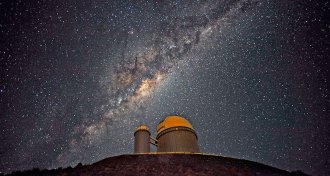 Astronomy
AstronomySolar system sits within a major spiral arm of the Milky Way
The solar system appears to live in one of the major spiral arms of the Milky Way, not in an offshoot as previously thought.
-
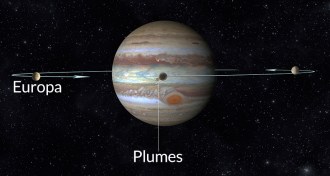 Planetary Science
Planetary ScienceEuropa spouting off again
Plumes of presumably water erupt from the surface of Jupiter’s frozen moon Europa, in images taken by the Hubble Space Telescope.
-
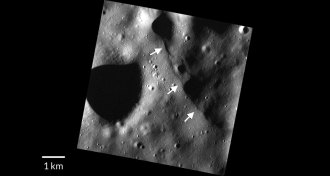 Planetary Science
Planetary ScienceMercury’s surface still changing
A population of small cliffs on Mercury suggests that the planet might have been tectonically active in the last 50 million years.
-
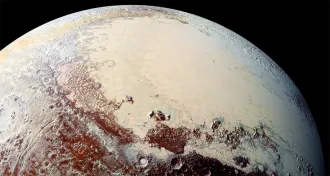 Planetary Science
Planetary ScienceA salty sea could lurk beneath the heart of Pluto
An ocean more than 100 kilometers thick might hide beneath Pluto’s surface.
-
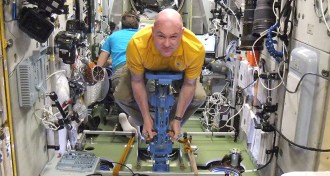 Astronomy
AstronomyOld-school contraptions still work for weighing astronauts
To weigh themselves, astronauts still use technology invented about 50 years ago.
-
 Astronomy
AstronomyAnna Frebel digs a young universe
Astronomer Anna Frebel has discovered record-breaking stars, including the most pristine in the galaxy.
-
 Cosmology
CosmologyA cosmic quandary, risks of hatching early and more reader feedback
The cosmos, tadpole escape artists, vehicle collisions and more in reader feedback.
-
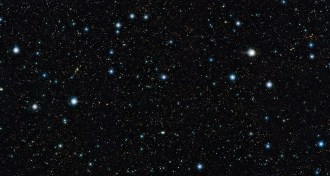 Astronomy
AstronomyThe sun isn’t the only light source behind that summer tan
About 99.999% of the light that creates a suntan comes from the sun; the rest comes from the Big Bang and galaxies throughout the universe.
-
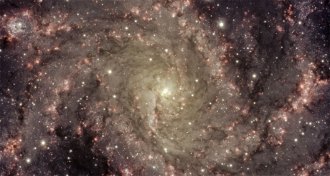 Astronomy
AstronomyVanished star may be first known failed supernova
A star that vanished in another galaxy might be the first confirmed case of a failed supernova — and the birth of a black hole.
-
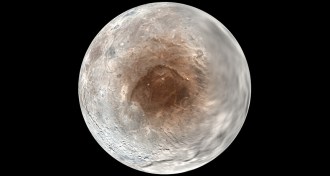 Planetary Science
Planetary ScienceSource of Charon’s red north pole is probably Pluto
The dark red pole on Charon, the largest moon of Pluto, is probably gas that escaped from Pluto and was then transformed by sunlight.
-
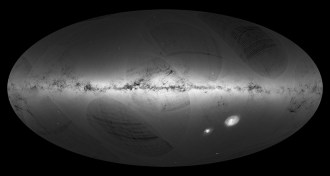 Astronomy
AstronomyGaia mission’s Milky Way map pinpoints locations of billion-plus stars
New map of the galaxy provides unprecedented positions of over 1 billion stars and promises of a detailed 3-D atlas to come.
-
 Planetary Science
Planetary ScienceSource of Charon’s red north pole is probably Pluto
The dark red pole on Charon, the largest moon of Pluto, is probably gas that escaped from Pluto and was then transformed by sunlight.